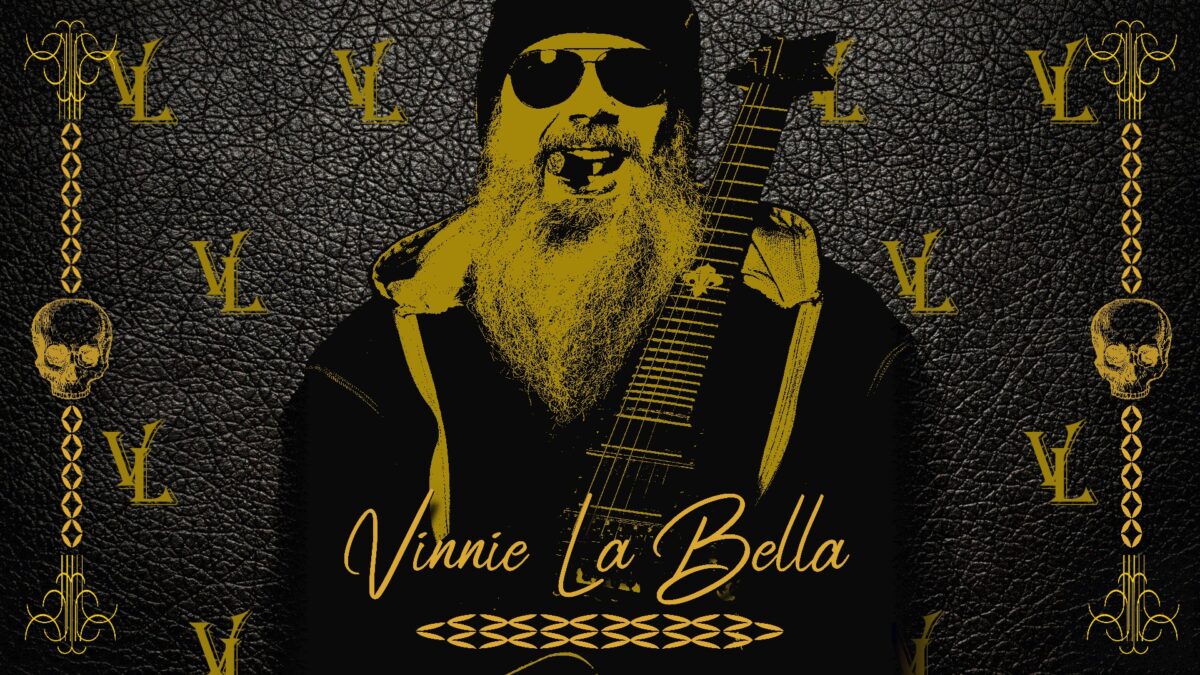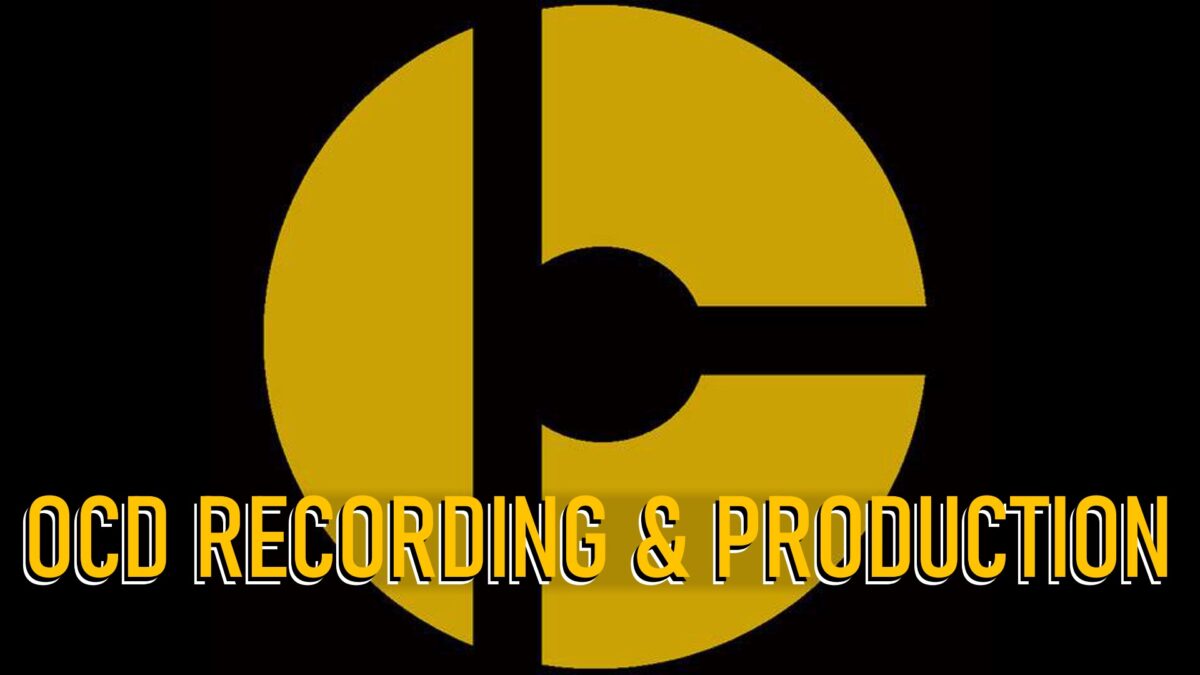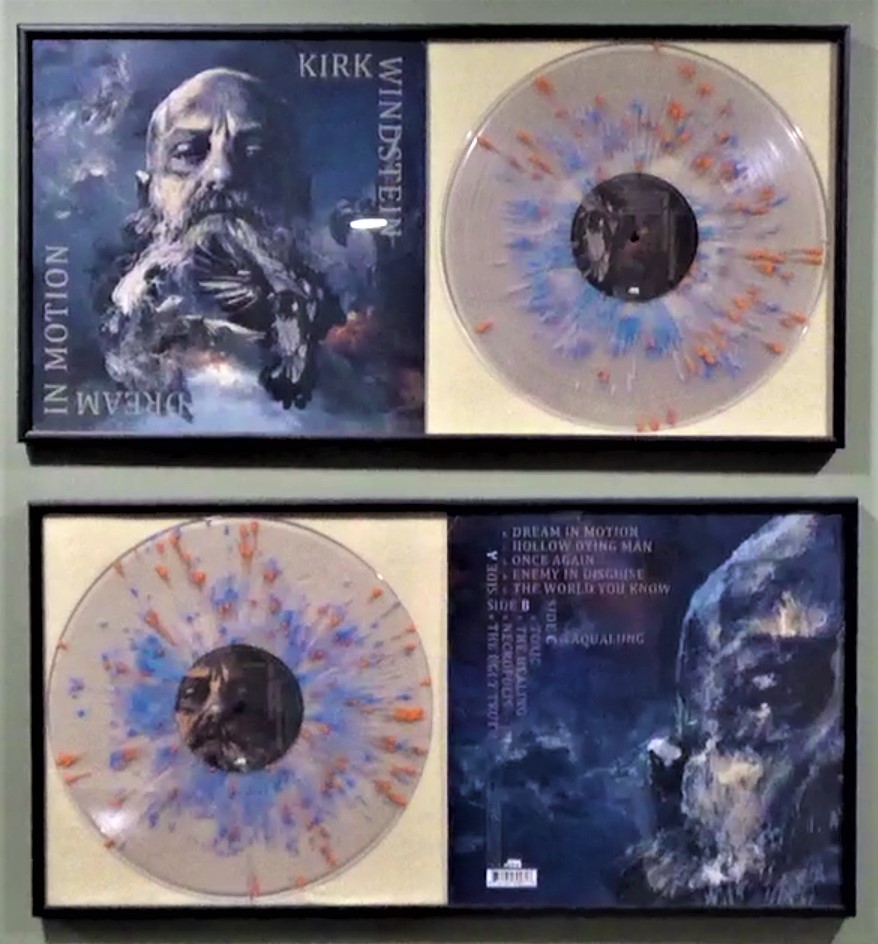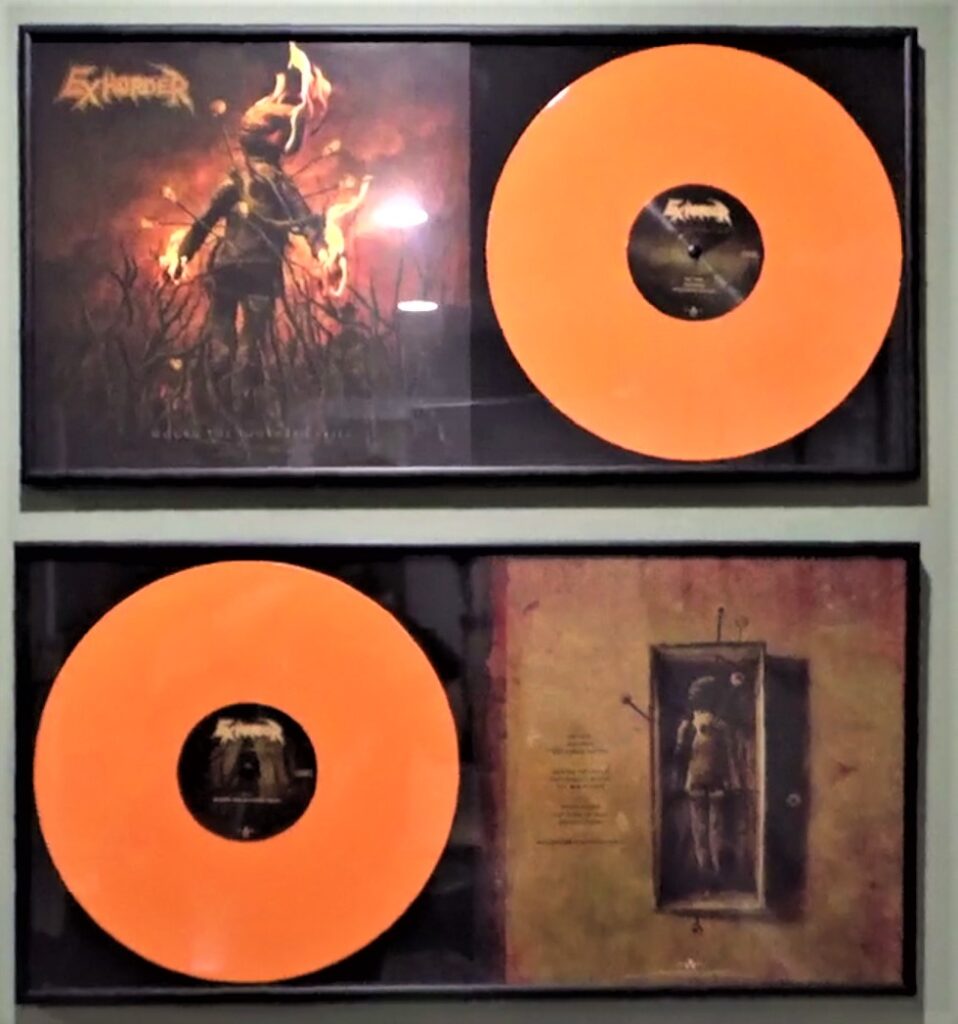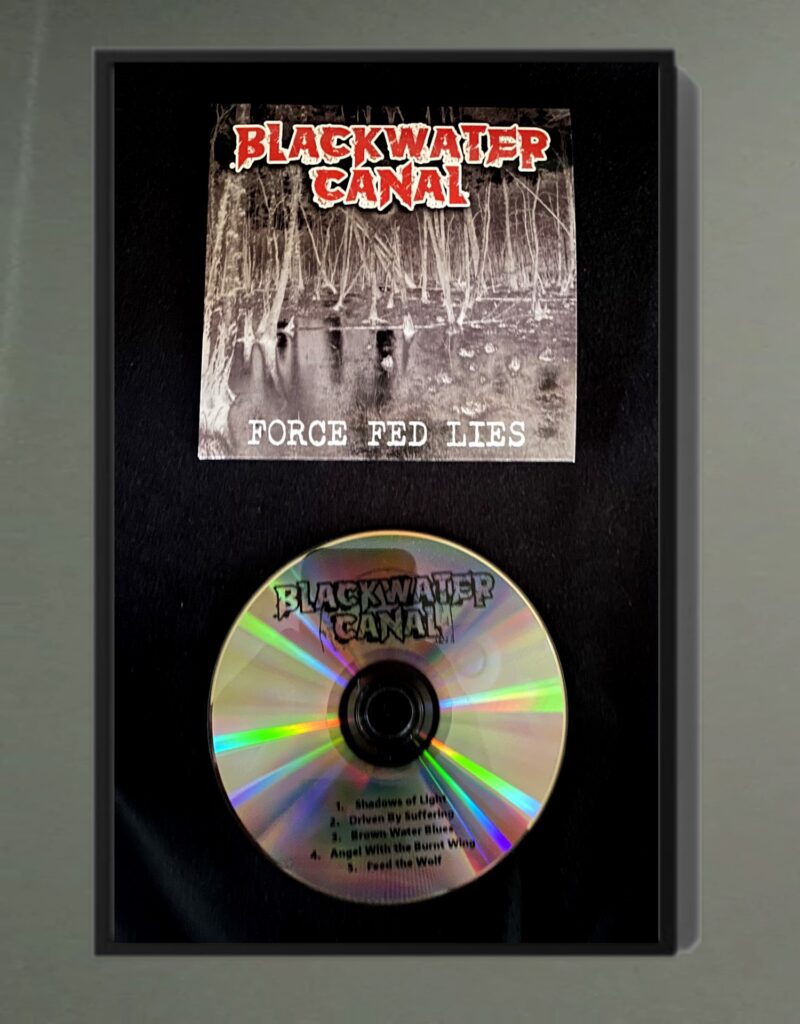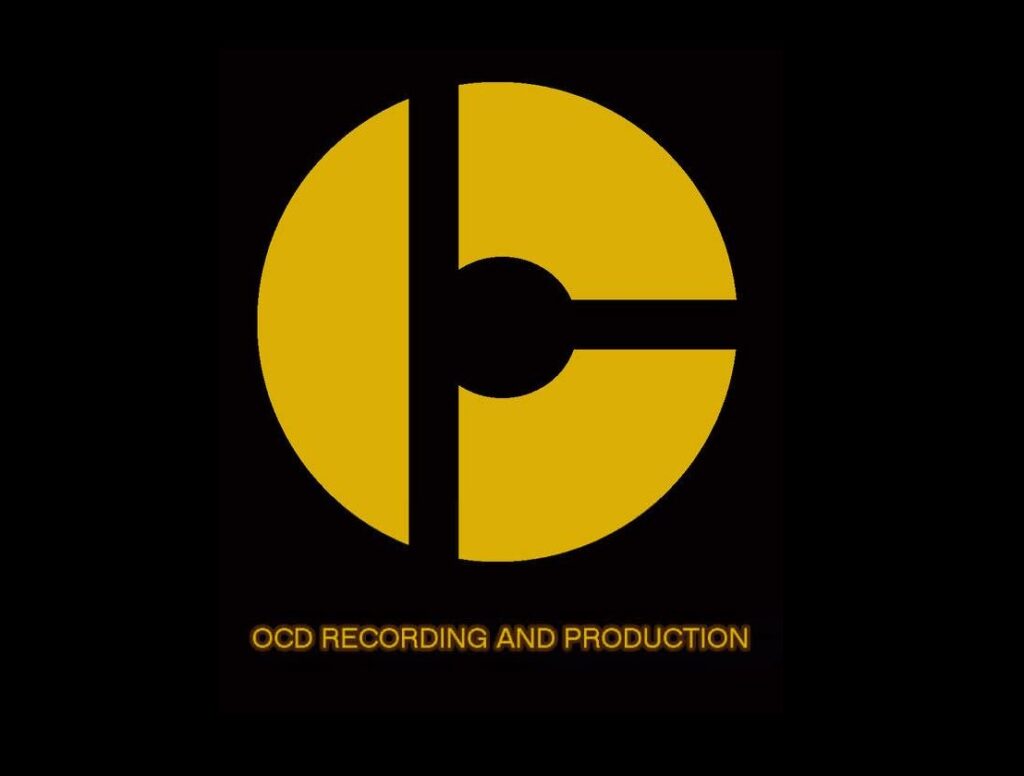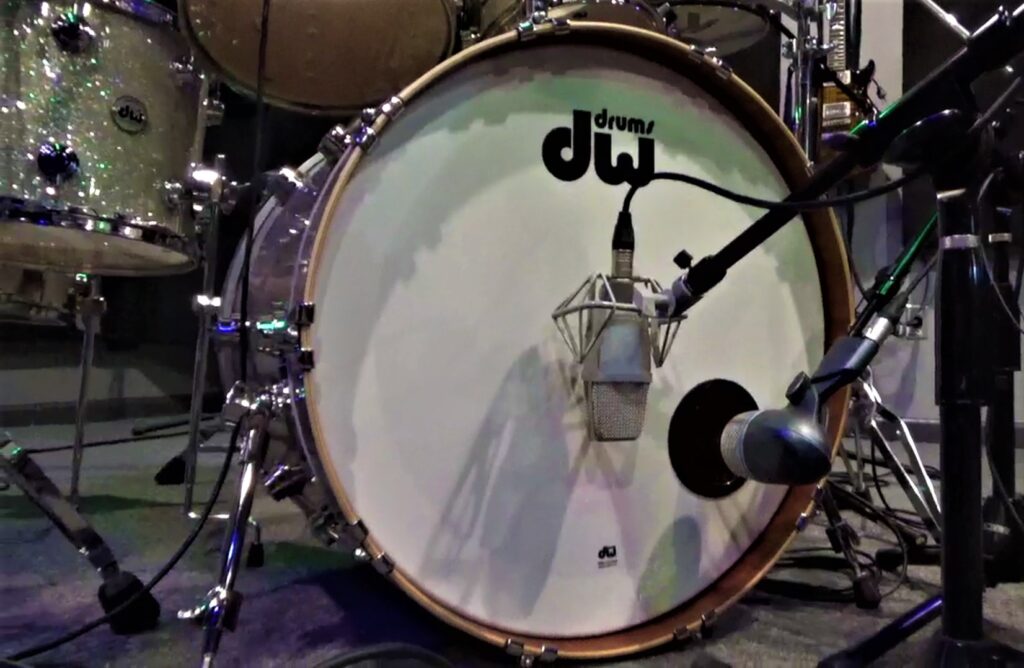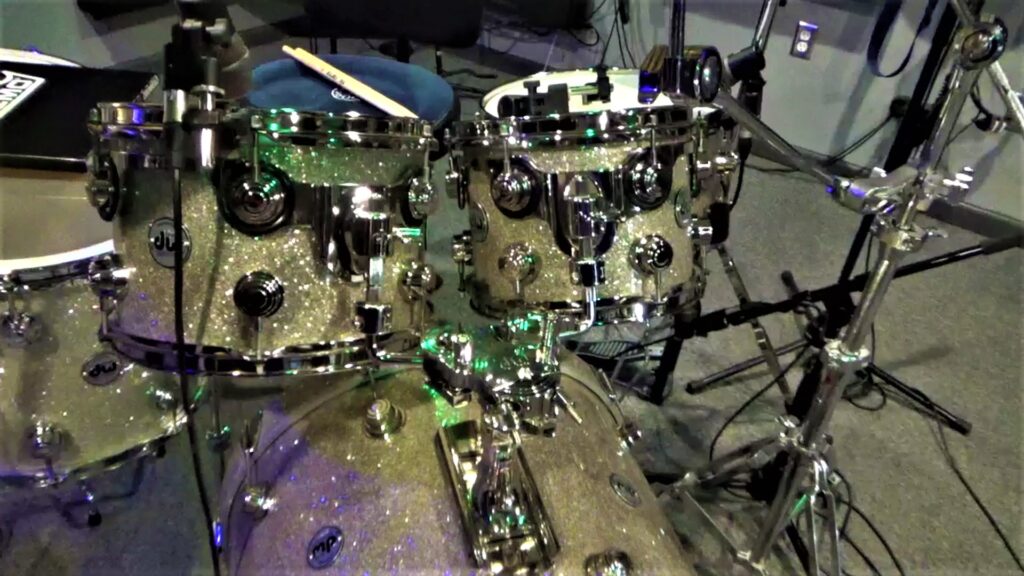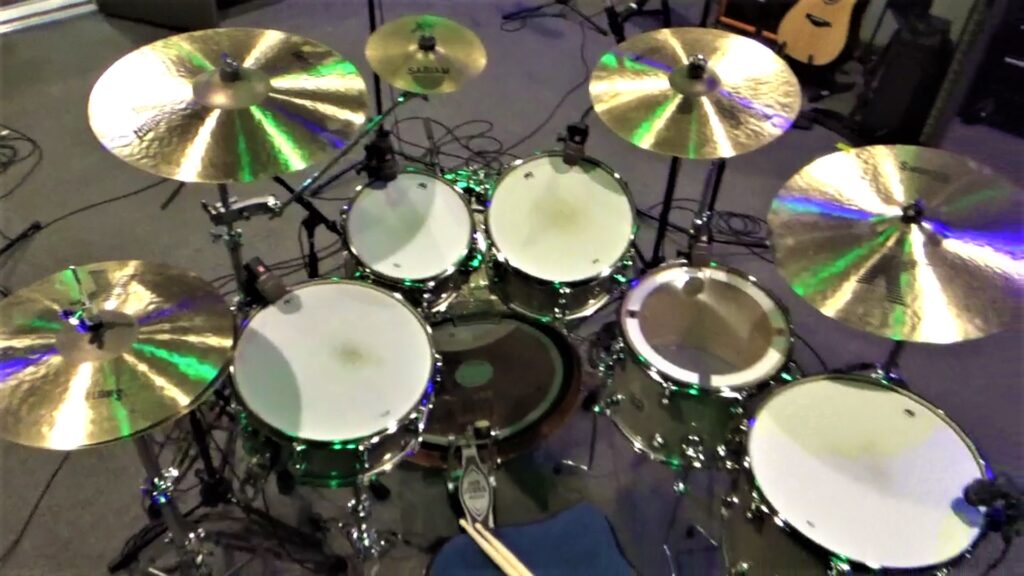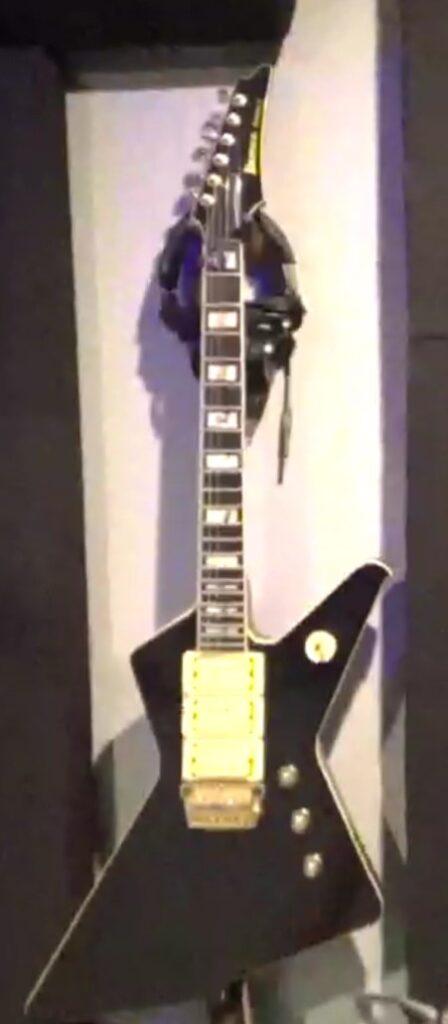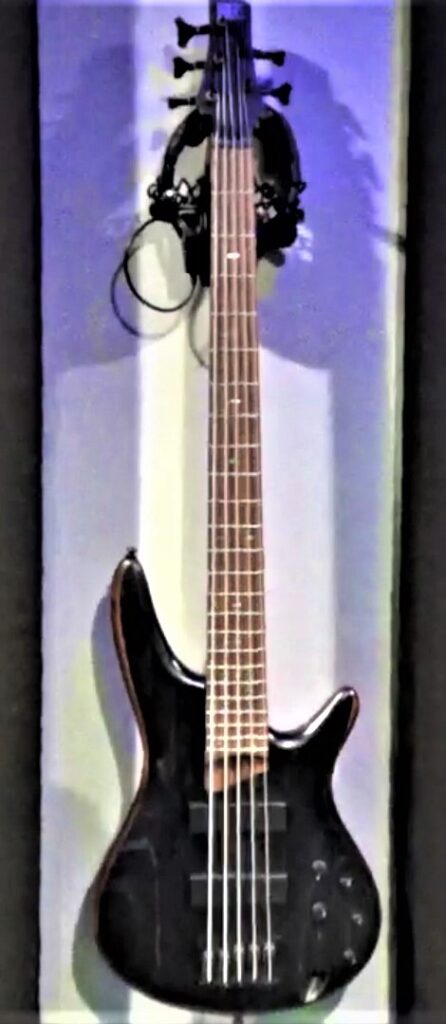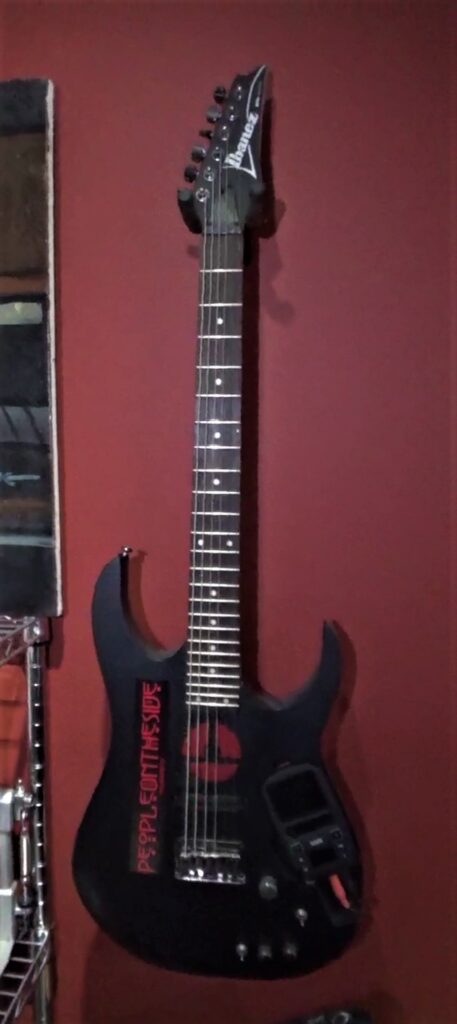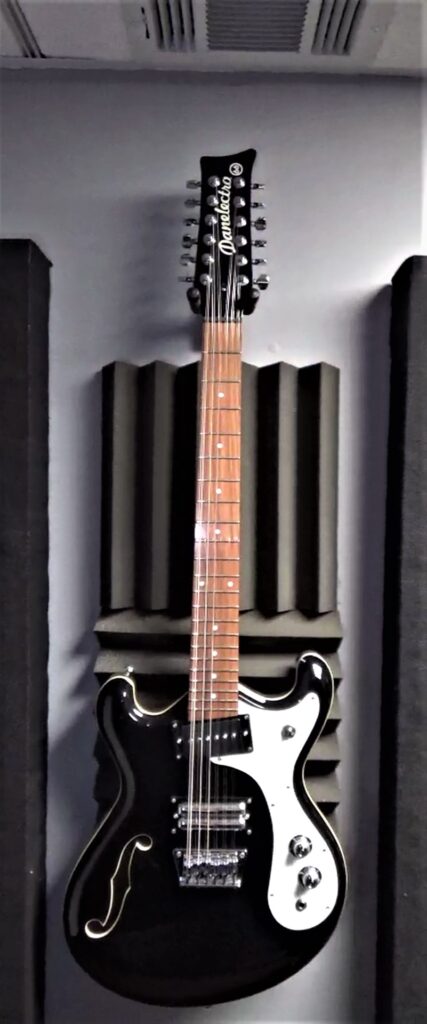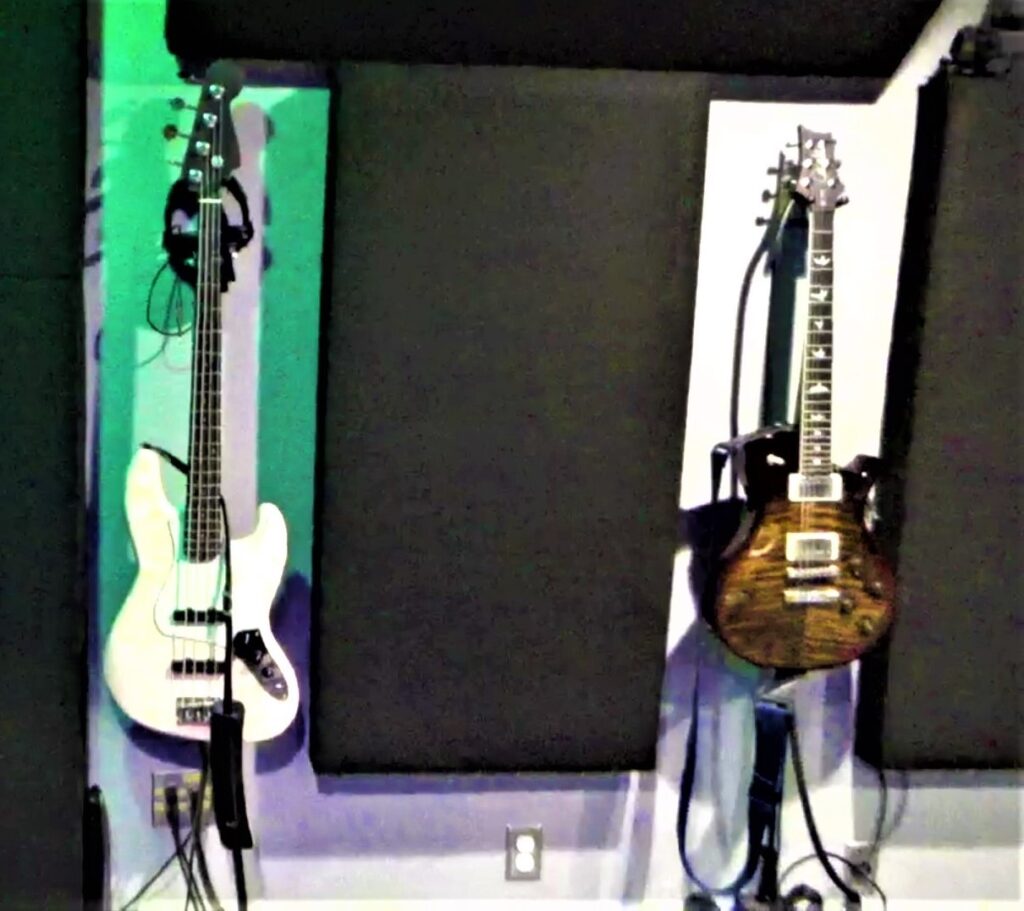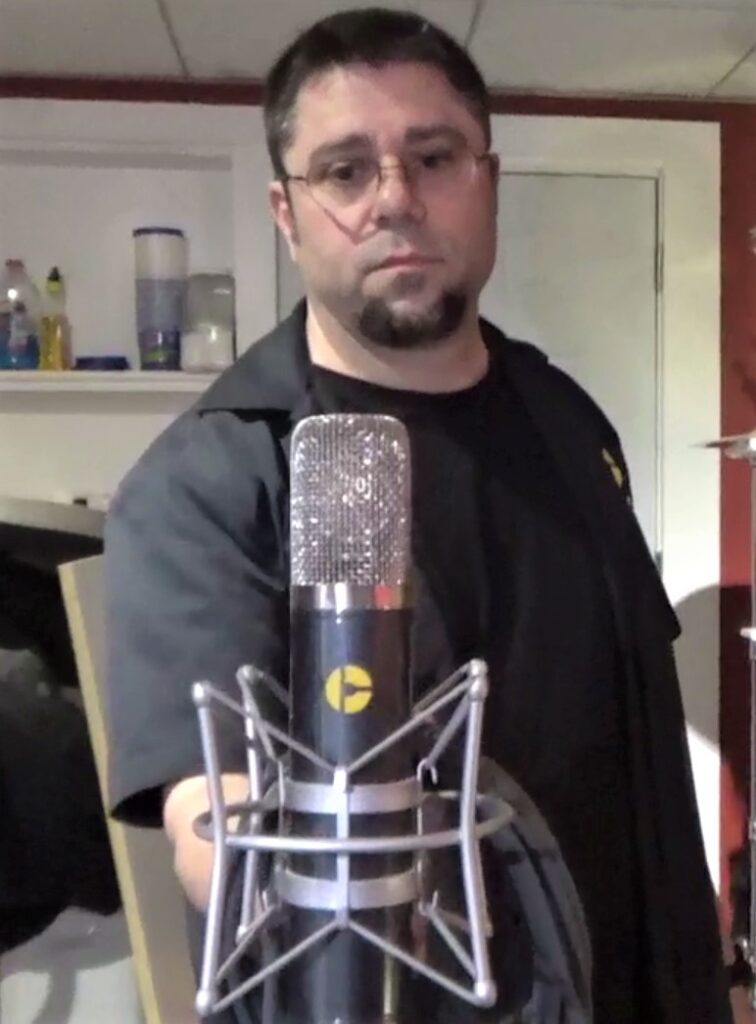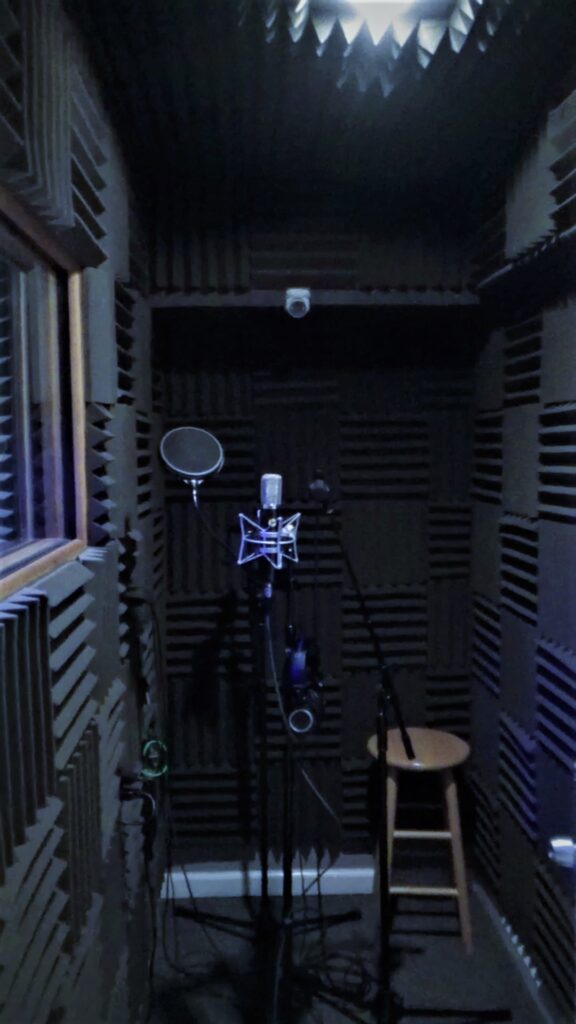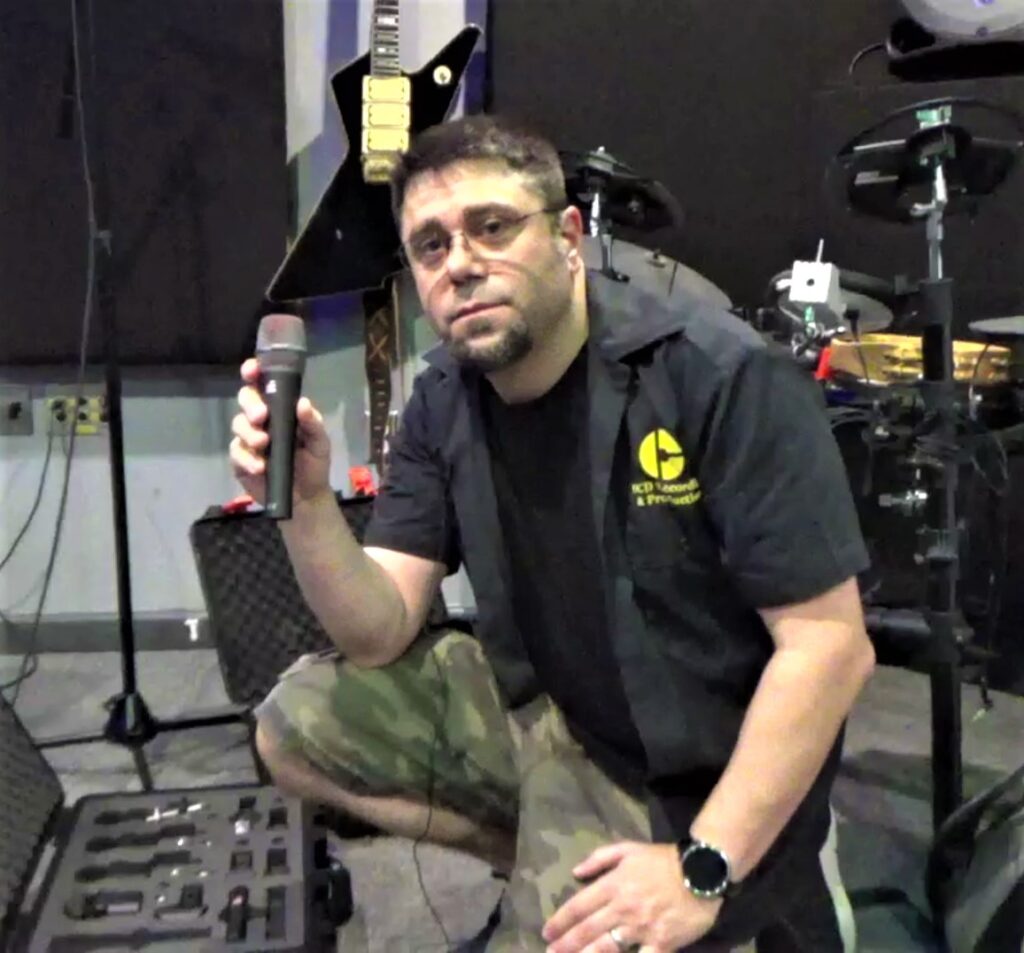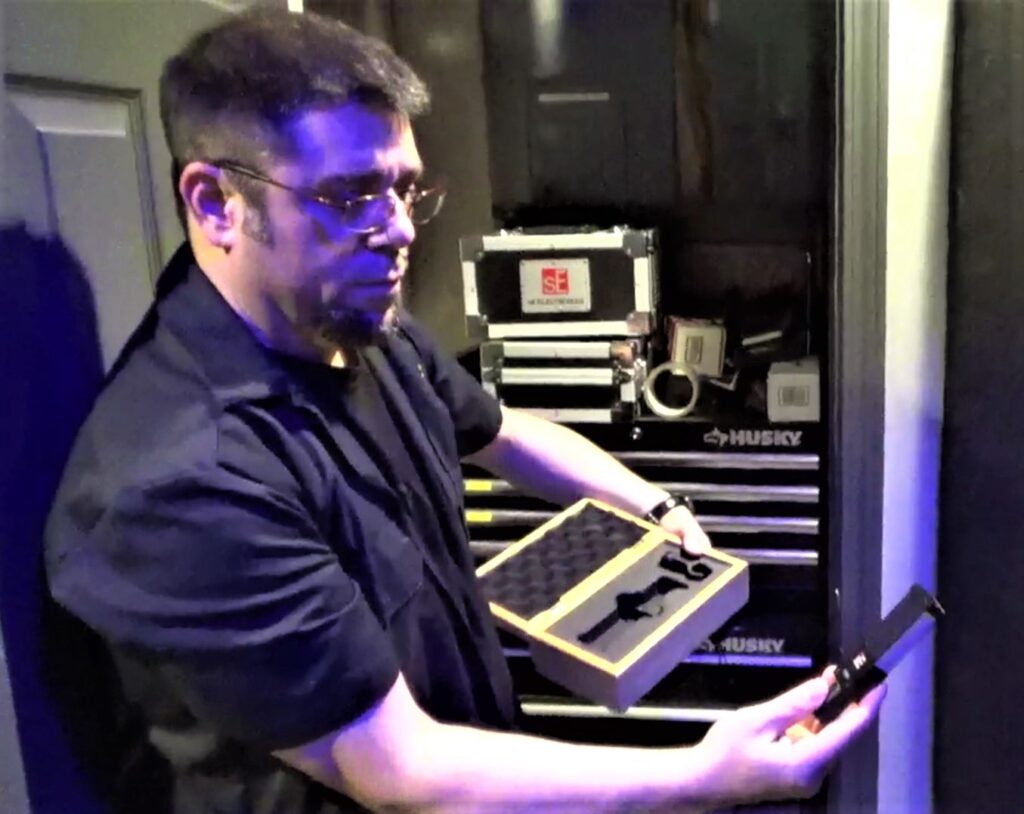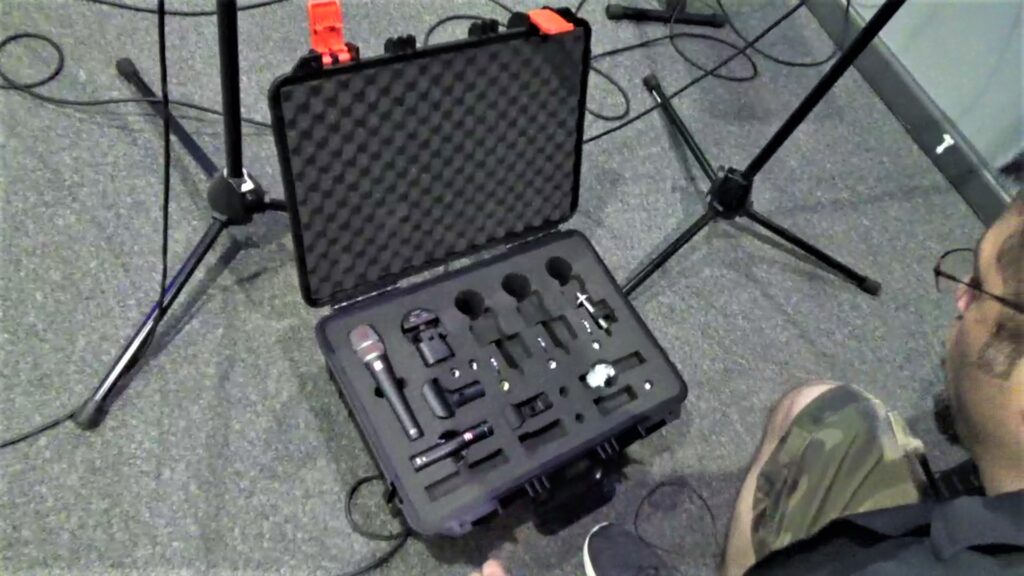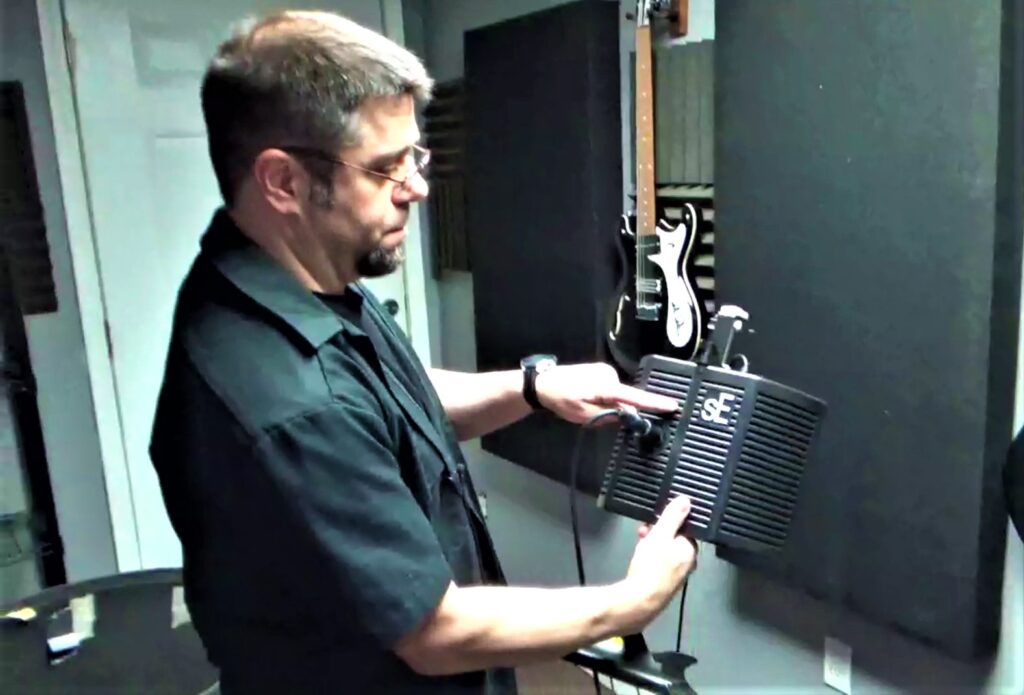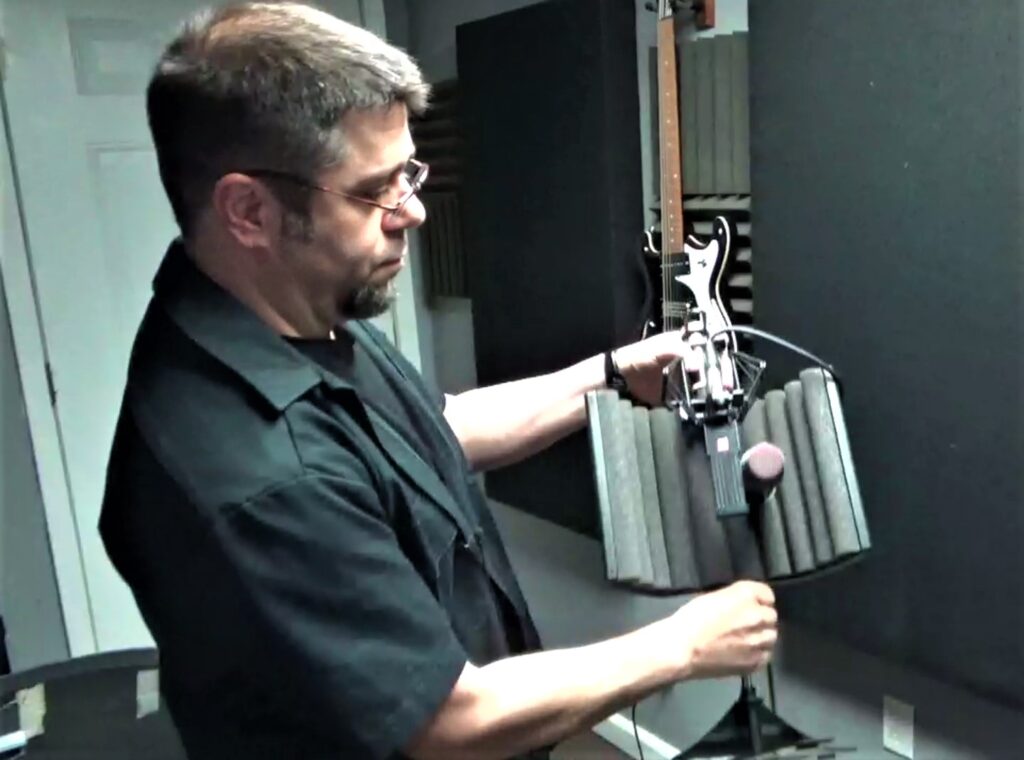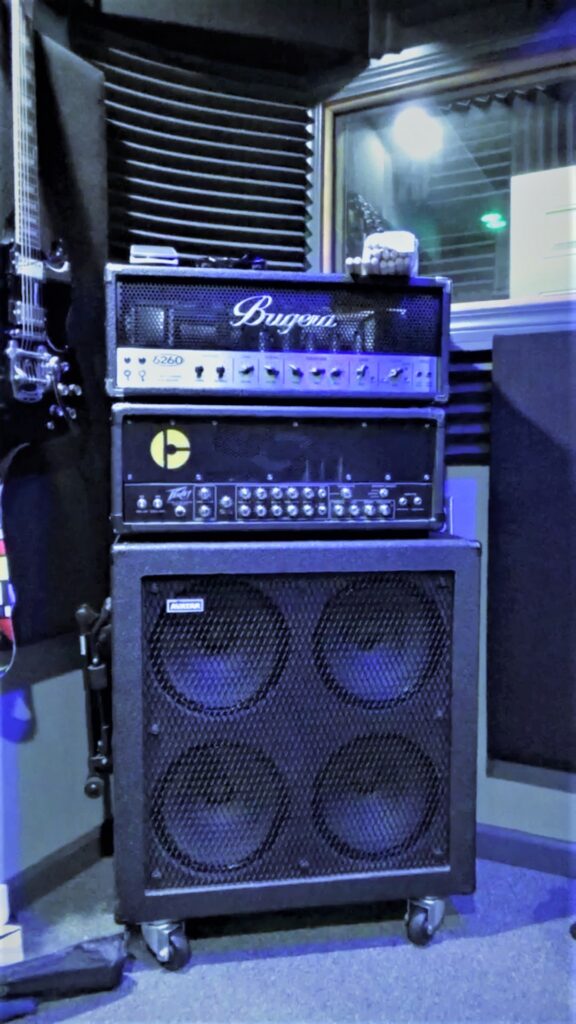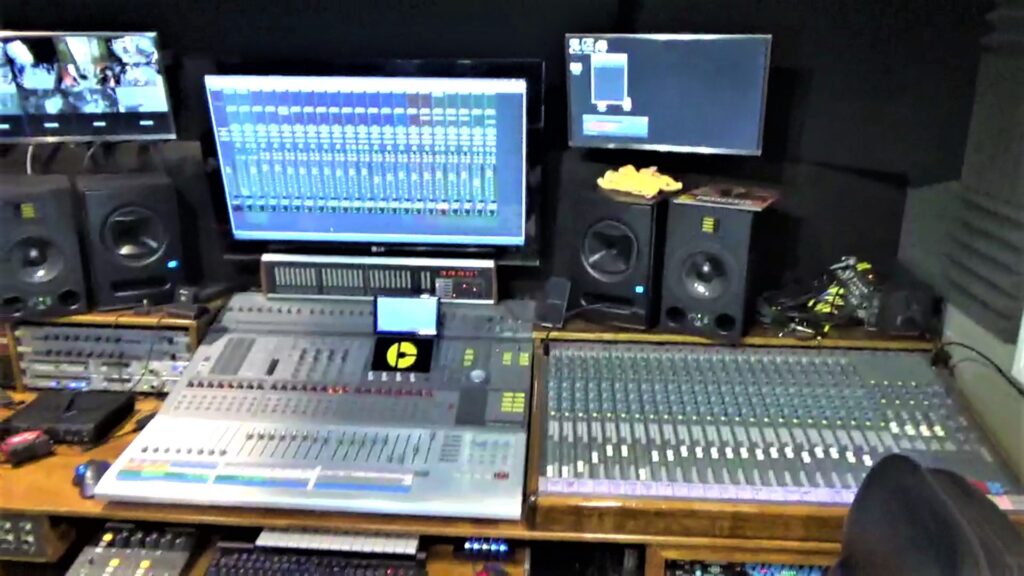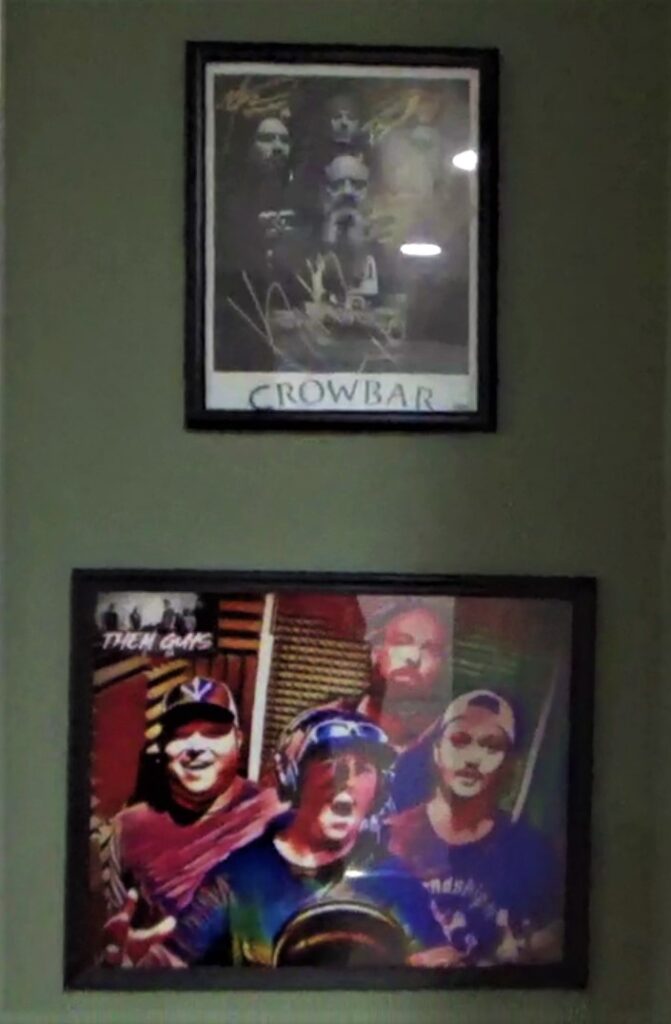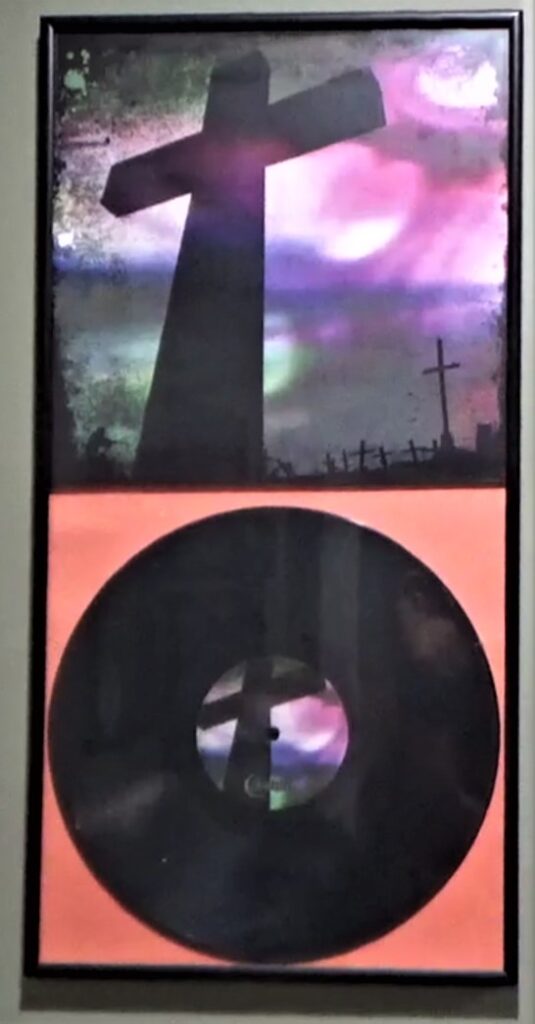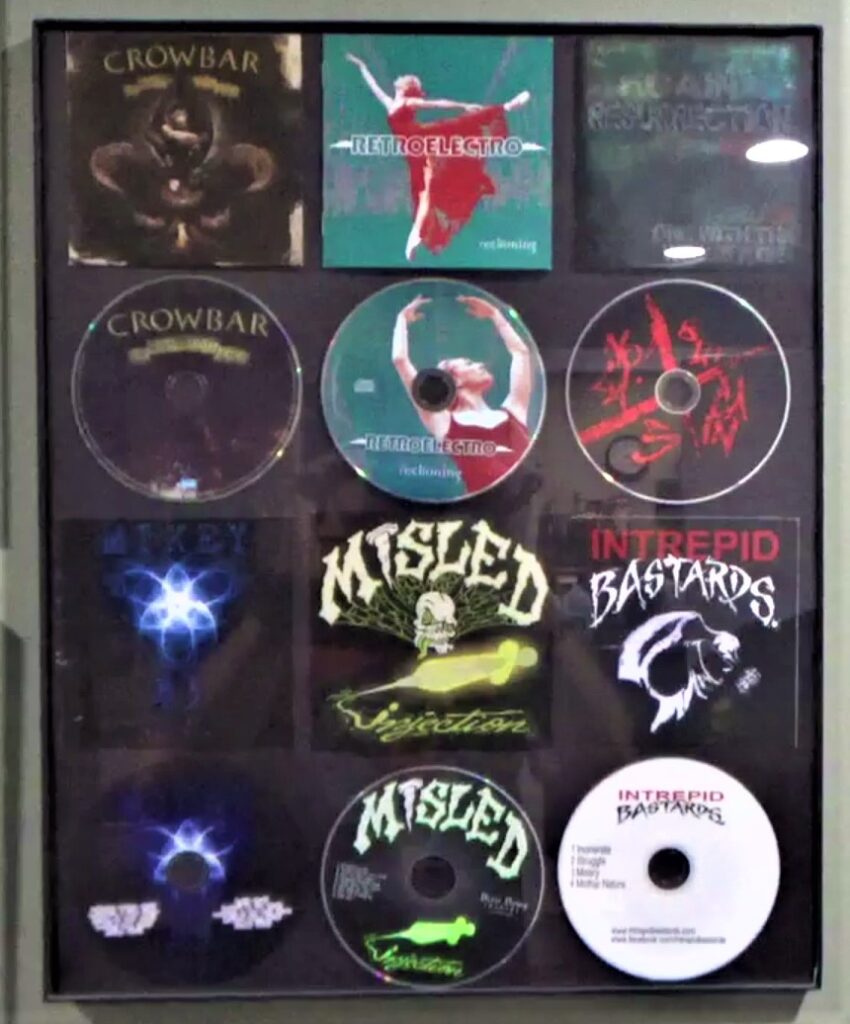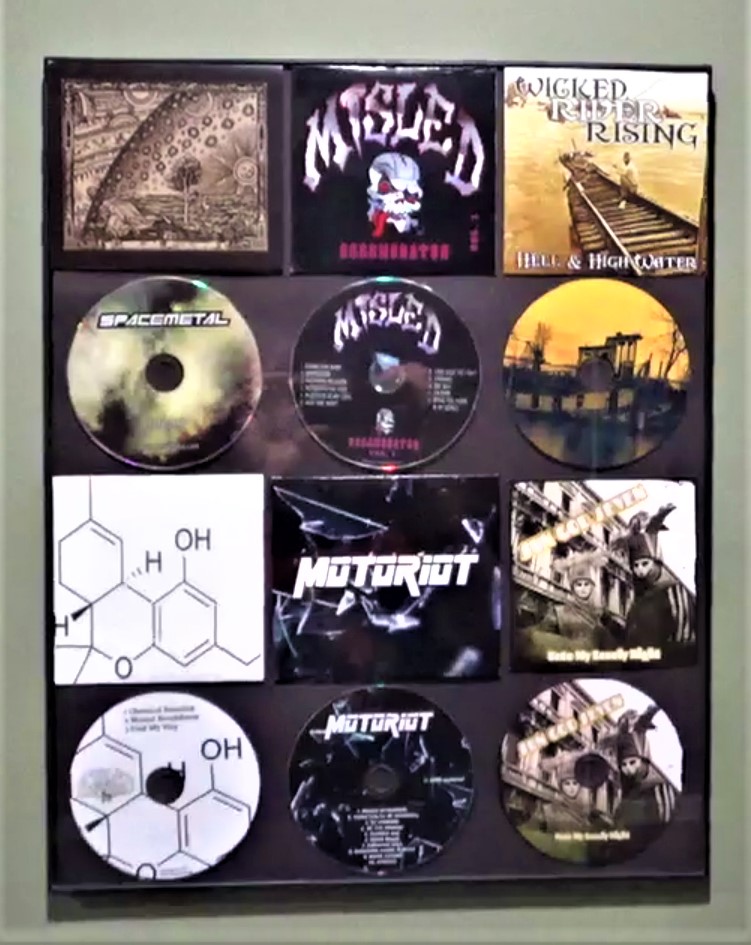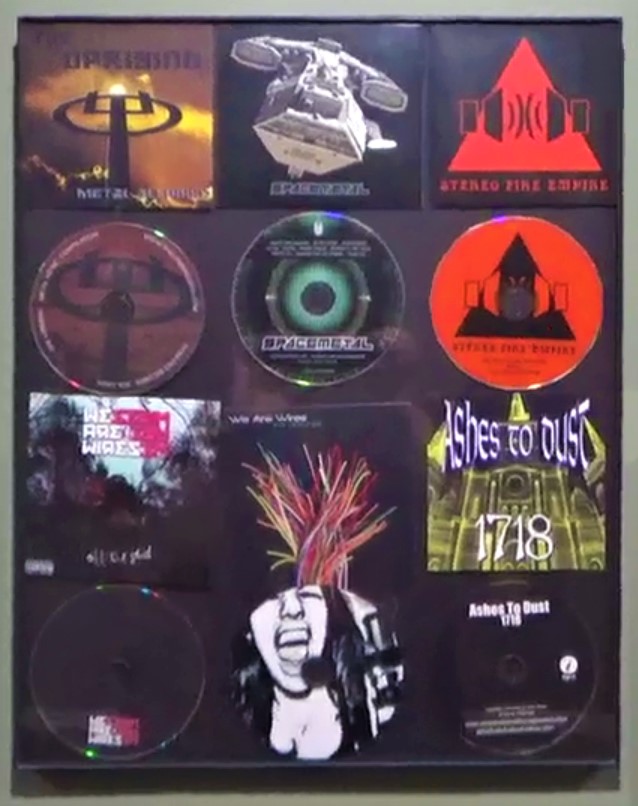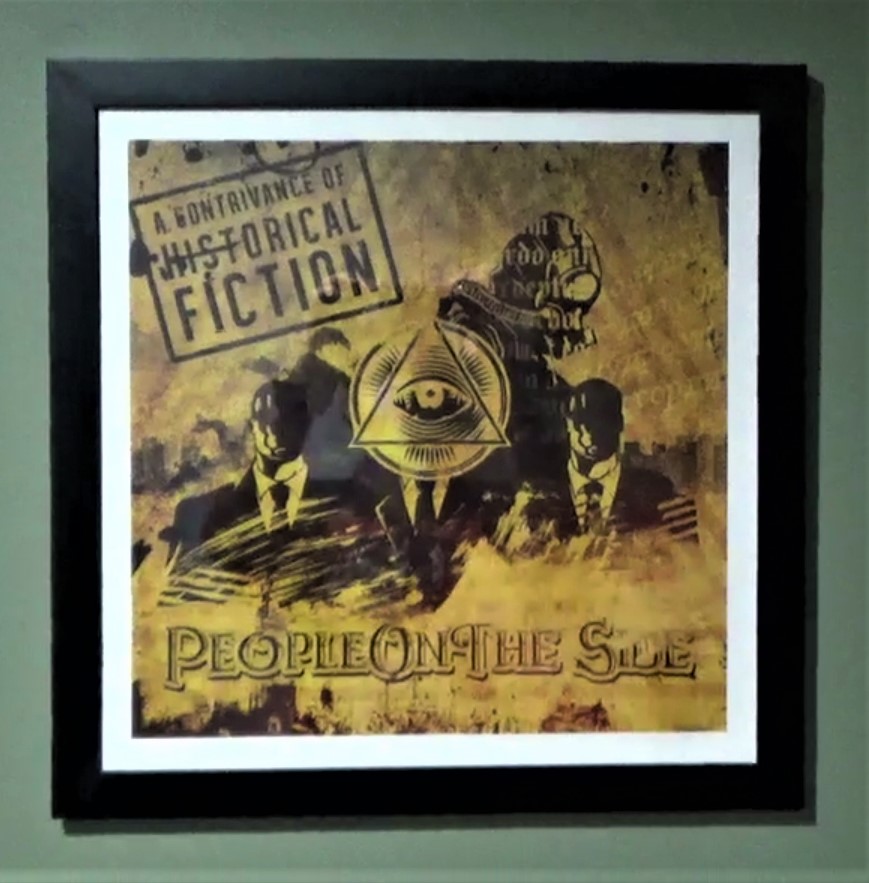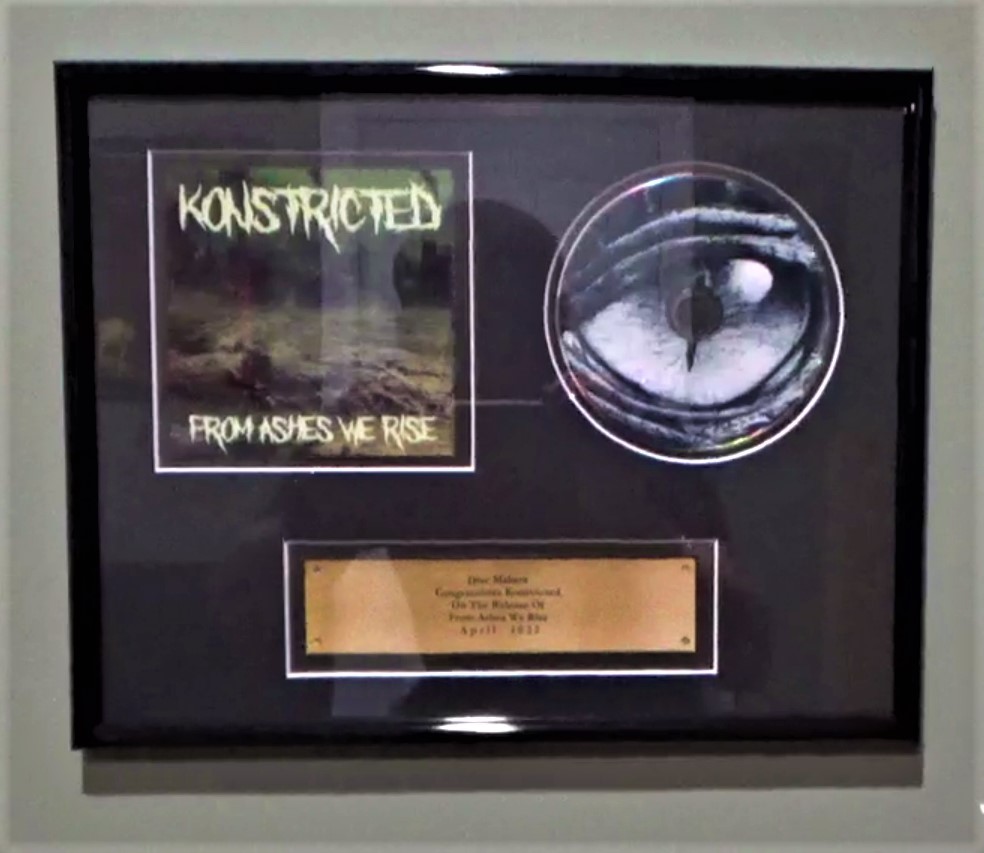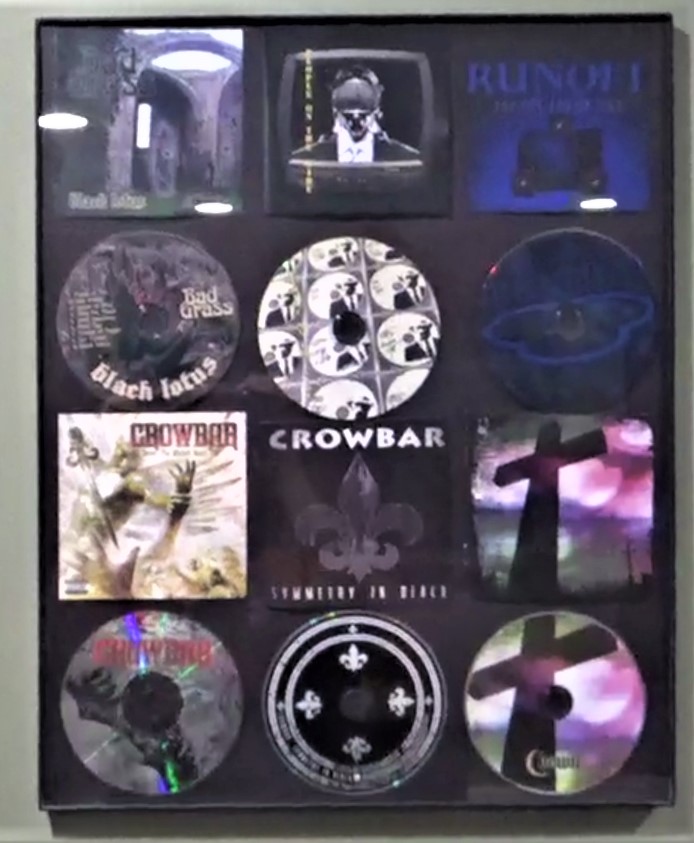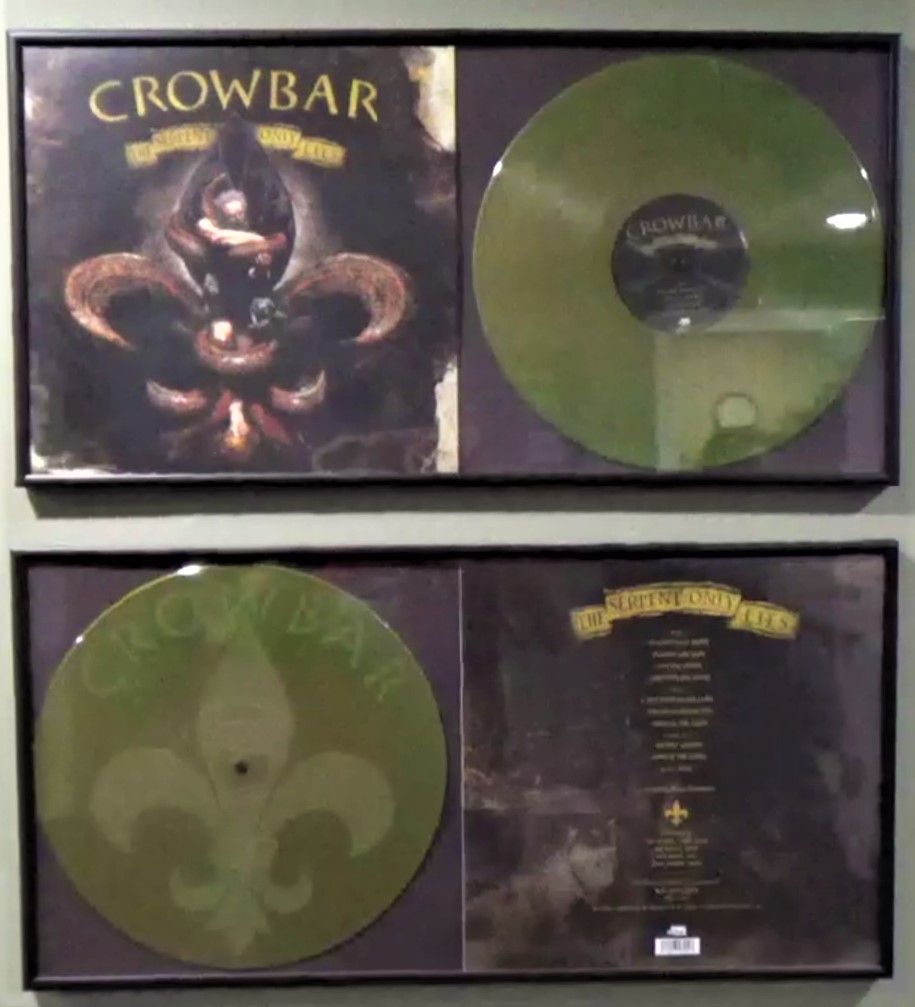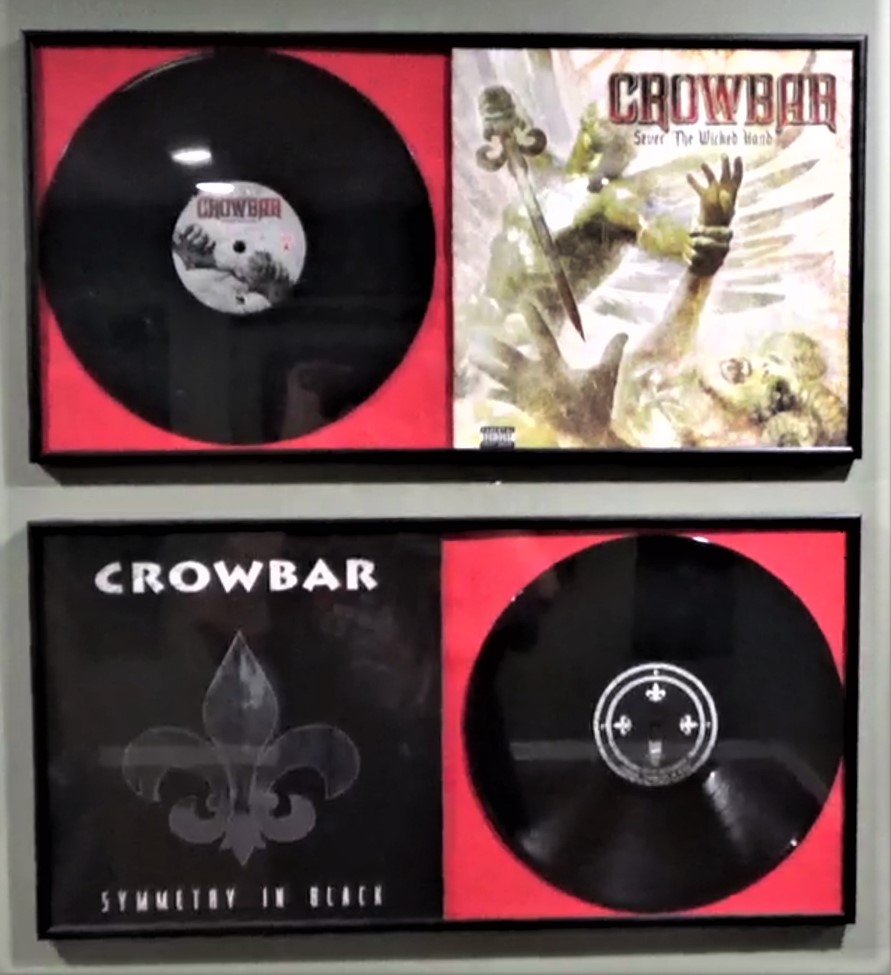To be painfully honest, excess seemed to be the goal of my life while growing up; the most booze, the most parties, the most drugs, the most women. Slowly, my life began to become the locust swarm. I existed to consume and move on, until I was satiated or unconscious. But somewhere along the way, my quest for quantity gave way to quality. Upon reflection, my past had become a misguided detour. And all those allies who shared in my crusade, liars. I began cutting people out in pursuit of the answers to unending questions. Who am I? What do I want out of life? Why are the things that I want and the things that I truly need always at odds? Looking back, although traumatic in nature, I believe this to be an integral part of growing up; maturation at its essence. Through our talks, I believe this to be the crux of Vinnie La Bella. But Vinnie La Bella consumed for a reason that would land him on stages in front of hundreds of thousands. He moved for what was to be an organism that would usher him around the globe. The desire, the intensity, and the results would maturate rewards and costs of epidemic proportions, leaving physical and moral values lying in limbo.
Vinnie grew up in University City, a small neighborhood in Kenner, Louisiana bordering several suburbs and one veritable marshland. His father was a singer in a cover band that played mostly top 40 hits of the time. Being around musicians as far back as he can remember, the set-ups for practice, the camaraderie, and the grown banter were some of the appeals that drew him in. He can recall his father bringing home the Fandango! album by ZZ Top to learn a song and falling in love with that album. Between sneaking playtime with the guitar of his father’s bandmate, and classes in jazz theory, his love for guitar was solidified as early as eight years old. By the time he was eleven, he had learned enough to feel comfortable on the thing. It started to occur to him that this was something he could actually do for a living, perhaps in part, because of his father’s influence. But the mechanics of play had definitely become more familiar with time. And in time, nothing would move him more. His parents divorced when he was fourteen. And by age fifteen he was living with his mother on Hessemer Avenue in Fat City. Up until this point, guitar had helped to solidify a foundation between him and his father. So, to hear him tell it, his parents’ parting of ways didn’t really bother him. But he did, however, take advantage of his new digs. In the 80’s, Fat City was still a bustling neighborhood full of bars with live music. And at fifteen, Vinnie was beginning to establish roots of his own. Fat City would serve as a fertile medium to facilitate his growth; both as a young man and a budding musician.
For all intents and purposes, Vinnie was a loner. With just enough people he called “friends” counted on one hand, he was resolved to explore the world on his own. This translated into a person that possibly grew up too quick. He would quit school early to become a hustler, and admits he may have squandered opportunities. A reckless lifestyle would prove a comfortable place for him to exist. And those who were there know Fat City could give you all you could eat. From where he lived with his mother, 17th Street was just a two-minute walk. “Now the walks to the bar were always nice and clean. The walks back got interesting. You know, I woke up in a few alleys along the way, ten o’clock the next morning. But that was the stomping ground”. Though stumbling at times through life, he always seemed to fall in the right direction. And even his vices would prove of value. Fat City is where he met Kirk Windstein (Crowbar). It’s where he met Phil Anselmo (Pantera, Down, Superjoint Ritual, Necrophagia, etc). It’s where he met Andy Villafarra and David Main, with whom he would go on to form Exhorder. Fat City is where he played his first show in a cover band called Sabotage. And it also served as the place where he would draw a line in the sand. But before his own assertions, he would need confirmation elsewhere; confirmation that his suspicions were correct.
Speaking strictly from personal perspective I can tell you that there’s always been a voice inside my head. Maybe not so much a voice; it’s more like an inaudible message center. We’re all born with it in fact. In some, it’s just louder than in others. In our latter years, we learn of it to be the Id. It’s a part of the psyche, residing in the unconscious, that is the source of instinctive impulses. It wants nothing more than to be satisfied but is constantly modified by the ego and the superego before being given overt expression. It provides all of the energy for, and is the driving force of, personality. Unto itself, it has no organization. Being guided by his vices, seemingly falling in the right direction at times when his Ego or Superego would shine through, brought Vinnie to a defining moment in his life. Through this guiding force, Vinnie would often find himself venturing outside of the microcosm that was Fat City. One of those destinations was uptown New Orleans where hardcore and punk were prominent. This was a breeding ground for those that shunned society and smeared the edge. Sonic exploration was not only prominent. Here it was a prerequisite which fed Vinnie’s Id. “I remember walking out there for the first time, like, going to Jed’s. It was on like, Oak Street or Maple; right down the street from Jimmy’s Music Club. And that’s where they would have the punk and hardcore activity weekends. That was basically where we would all go. So, Circle Jerks played, Black Flag, I got to see all them bands… Dead Kennedys. And we would go over there and start hanging over there and noticing woah, this is a totally different world. Not only musically but, you don’t play cover songs out here. No band gets up there and plays a Black Flag song. You would probably get tomatoes thrown at you. You had to be an original thing offering something to the scene, being part of the culture, and growing”. This confirmed to him that the scene in Metairie really had grown stale. Metairie had the Ratts and the Poisons of cover bands. It had mostly become a hairspray haven where leotard clad man boys were chasing a path that had already been, by now, cliched. Punk and hardcore influenced thrash in metal. And cover bands influenced… nothing.
On campus at Tulane University is a radio station, WTUL. And back then, on the weekends, it would host a metal night one evening and a hardcore night on the other. Vinnie would also venture out there to a basement where the radio station was housed, bearing any goodies he may have procured throughout the evening. Two brothers were DJs. And together with Vinnie and friends they would pass around records, discussing them and giving them a spin. These uptown experiences, at the radio station and at live shows, were the building blocks upon which Vinnie’s own first band was founded. It would be the Id, his Id, incarnate. It would be proof positive that a dissention from what had become the norm of his environment was not only in order. It was necessary to avoid furthering apparent necrosing. Things would come to a head one evening in the dressing room before a performance with his first band, ironically named, Sabotage. “I was basically given an ultimatum in that band. I was in the dressing room. We were about to play a show and I was thrown some garments. ‘Here, wear these tonight’. And when I looked at these garments I was like, I can’t go out there like this. And he said ‘well you have to or you’re out this band’. And I said well, I’ll be out this band then… tonight mother fucker. ‘Aight, aight well you don’t have to wear that’. So, that was the last show I played with them”. This wasn’t at all about cover bands. Vinnie respected cover bands. His father was in a cover band. At one time, he even subbed guitar for a cover band when he was asked to bail out a friend in need. He was handed a list of one hundred and fifty songs to learn with two weeks to learn them. But again, having seen what the hardcore scene was like, and knowing it was more the direction he wanted to move in, left him with little vested in what things had become. And ever the hustler, he would soon take members of that band with him.
Establishing himself in a fishbowl of clones would not prove easy. Though he could see the gateway from his doorstep, anything west of New Orleans was just, not New Orleans. And Fat City was the fishbowl of not New Orleans. To become a deflection in this biosphere meant facing backlash. And staking one’s claim sometimes meant going on the offensive. “I was kind of frowned upon. And it caused a lot of beefs. I was an asshole man. And I would make fun of guys for doing it after a while because they were making fun of me for hanging out with the punks. So, it got to be a lifestyle kind of thing. You know, like I’m willing to whip your ass over this shit. That’s how deep we were into this. If you talked bad about Exhorder in the 80’s, you might not be around today talking about it. I’m serious. We were fucking assholes man”. The same guys that would say you’ll never make a dime doing that or the chicks will never listen to that were the same guys who would eventually break out of this redundant mecca. But latency meant they would have a new band to follow. In retrospect, Vinnie feels as though it would have behooved those people to pivot sooner than later. A lot of great talent was born out of the moment when they finally steered clear of mimicking the hair bands of that bygone era. But at that time, he felt as though he was defending his honor. At any rate, once he left that band and this scene, there was no turning back.
Writing for Slaughter in the Vatican would start almost immediately, but with only Vinnie and Andy Villafara, it would be an arduous task. David Main would soon follow suit leaving Sabotage. And the better part of a year would pass while writing and securing a permanent lineup. But throughout it all and no matter what, hardcore music had entranced Vinnie. He would rather die than see himself end up where he was headed. Music and life had become synonymous. And both, in Vinnie’s eyes, were secondary to this alliance. Given his proclivity for extremes and his perception that Exhorder was more like a gang than a band, things would become violent at times. Being that the foundation of this band was forged in contrast to everything out there, opposition could be found everywhere; even within the band itself. “To be honest man, I wasn’t the only lunatic in the band. I mean, these guys were legitimate fuck-ups man. We were all fucking nuts. I got in a fight with my drummer over some bullshit, year one. I kicked his fucking door down. I ended up going to jail and doing community service. So that’s kind of how we started; out of just anger and violence. And we were taking it out on our instruments and just making a hell of a noise musically about it. After that little scuffle with Chris, him, Kyle, and David left”. This would be the first of several partings for Exhorder. And the band was still so new, to themselves as well as everyone else. This occurred in late 1987. Their very first gig was just the year before on Franklin Avenue in 1986. At this point in time, they had yet to finish recording the demos for Slaughter in the Vatican. The process of rebuilding would go on for a year. During that time, Jay Ceravalo (rhythm guitar) would enter the picture.
At best, Jay was an aspiring guitarist. But Vinnie saw a bit of himself in Jay; the air of tenacity. So, he made a deal with him. Vinnie affirmed, “Bra, I’ll give you six months. If you can play this shit… and I will help you. I’ll come and show you. I will make you tapes and whatever you need. If you can do this shit you’ve got the job. And that’s when he got rid of his old lady, he quit his job and locked himself in a room. So, at the time it’s just me, Andy, and Jay trying to put some semblance of Exhorder back together”. Through this process, Jay would risk (and lose) most everything. He turned his back on a secure job with the city of Kenner, his parents kicked him out. Above all else, Vinnie recognized the loyalty and dedication and never forgot it. Sid Montz (Victorian Blitz, Crowbar, Valume Nob, Southern Isolation) would come in on drums about this time. But Vinnie still had to find a singer. One day in early 1989, Sid called Vinnie with some news. Vinnie recalls, “This is a good piece of history that I’ve never told anybody. But it’s important to where we land in this later. He (Sid) says listen man I talked to Phil (Anselmo). He’s not happy with his current situation. He wants to do something heavier and he can’t get the guys to get on board. So, he wants to come try out. So, I called him and said try out? There ain’t no fucking try out. You’re Phil. You can do this. You’re bad, you know? You’ve got the gig. Come home. He’s like no no no, I want to do it right. I’m going to fly in and try out. And I’ll come back and we’ll finish it. I said, ok. So, he came down and was as good as you thought he would be. I said I told you. You wasted your plane ticket. You got the gig! So, I put this mother fucker on an airplane right after rehearsal. He’s flying back to Dallas and he’s going home to quit Pantera. Now by this time Power Metal was the last thing they had released. The sound was still… the sound. So anyway, he’s in the air. I drive home from the airport. I walk into the house and the phone is ringing. I pick up the phone, it’s Kyle. I hadn’t heard from this mother fucker in a year. I haven’t seen him. I haven’t talked to him. He goes, hey man I heard you had Phillip in the room. I said what are you talking about? I haven’t talked to you in a year! How’d you know? He says, I wanna come back. I said he’s in the air right now! He’s going home to quit! So, I said dude let me call you back. I hung up the phone. I called up Jay and I said this mother fucker’s calling me. He’s like bro, it’s your call. So, I thought about it for a second, and I did the right thing. I said absolutely Kyle; come on home. We wrote these songs together. You’re the only mother fucker I can envision singing for this thing. I said, you got it. I just need to stop him (Phil) from fucking his own thing up. So, I said let me see what I can do. So, I called over there and Phil wasn’t upset or anything. He was actually pretty happy. He said ‘that’s good news. I’m disappointed because I really wanted to give it a go with you. But, I’m glad he’s back”. With Kyle back, Chris Nail would once again take over on drums. Anselmo would go on to record the famed Cowboys From Hell album with Pantera. And Exhorder would complete Slaughter in the Vatican, getting signed to Roadrunner Records. The what-ifs that ran through my head at this point in the interview came flooding in.
But tumultuous times were not behind the band. The signing was merely a piece to a puzzle that was never quite complete. Sure, they had remained in New Orleans, besting the labels turning them down left and right claiming that they needed to get out of New Orleans in order to make it. And one must realize this was the 80’s. This was the Regan era where shoulder pads and rampant consumerism dominated the arena. Even when they were finally signed, their first album came out mischaracterizing them as a ‘brutal thrash band from the depths of the swamp in Louisiana’. Their propensity for violence was getting them thrown off tours. This was no help either. But they knew they were on to something good. And this all would open up the door for many more out the south; a region negated as illegitimate in the world of musical significance. Between inner band tensions and music business complications, by the time The Law was released in 1992, the group was more than worse for wear. Vinnie had a baby. Chris was getting married. None of them could hold one another together or ever align their ways with normative business practices. Passion holds no court with principals. Principals are societally based. And passion is otherworldly. Exhorder would once again disband. Make-ups and break-ups would be scattered throughout the coming years. A turbulent giant would be remitted to a twenty-seven-year recording dormancy. In 2017, through specifics not revealed, Vinnie and Kyle would reunite for the last time, culminating in Exhorder’s 2019 release entitled Mourn the Southern Skies. It would be produced and engineered at OCD Recording & Production by Duane Simineaux under Nuclear Blast, one of the world’s largest independent metal labels. It is by far, in my opinion, the greatest work ever to come from Exhorder. Which at this point housed only two of its founding members. It would also mark the last time Vinnie would ever play with the band he started. “We tried to put it back together a couple of times. This last time the table was set pretty good. We had a good shot and it was working. We ended up in a dispute as usual. And this time the only original guys left were me and Kyle. The dispute was basically between me and him. It was basically over two bullet points that he just couldn’t get past, and I couldn’t get past. And finally, I was like fuck it. Hey if you want it this bad bro, take it. But you’re going to get your wallet out this time. Because a lot of times they leave me sitting there with the bill”. He went on to point out, “It is of my opinion that he, at this particular moment, probably hates my fucking guts. He won’t say it in the media but he probably does. It’s my opinion. I could be wrong. But five years, seven years, eight years from now you know, who knows”. They were maturing in the midst of this all. Their needs changed over time. With only two founding members remaining, what was considered Exhorder had changed as well. “Whenever Exhorder would break up in the past, we would just lay it to rest. Nobody owned the trademark or the copyrights or anything to that name. It just sat there. And it would always sit there until most of us, or all of us, decided to do it again. And it was always home base for us. If we ever wanted to make something of that thing we built when we were kids, it was always there for us. And it started when I said… yes”. Vinnie reflected on the Phil Anselmo story here, citing it as a moment in time that should’ve reinforced a standing precedence for the band. When it came to Kyle’s desires to return, he didn’t mull it over. He simply said yes. But this time, through communications with his lawyer, he was confronted by a standing vote to oust him. The organism would no longer be the sum of its parts.
These days, Vinnie remains deeply involved in music. He has established roots in production, and continues with recording and composition. Among his many projects, you will hear his work on Kirk Windstein’s upcoming second solo album, projected to be released possibly this fall. He went on to talk about that experience, as well the many projects that he’s currently involved in. You can hear this info first-hand and the details surrounding his life in music on our podcast by picking your streaming platform of choice below. Please be sure to subscribe, as this keeps our musicians’ names in the wind and gives our show a greater voice.
Author: David Trahan

